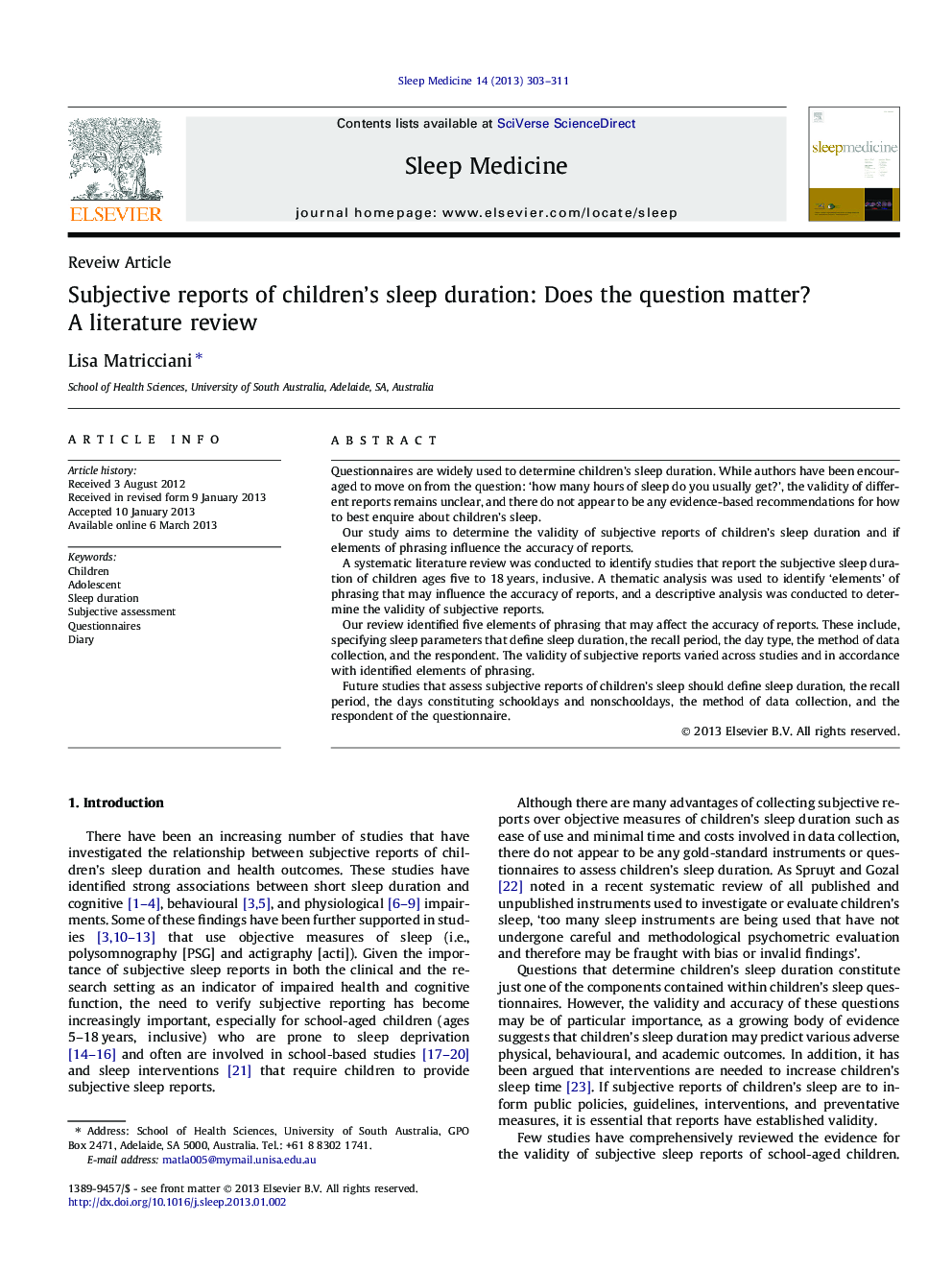| Article ID | Journal | Published Year | Pages | File Type |
|---|---|---|---|---|
| 3176494 | Sleep Medicine | 2013 | 9 Pages |
Questionnaires are widely used to determine children’s sleep duration. While authors have been encouraged to move on from the question: ‘how many hours of sleep do you usually get?’, the validity of different reports remains unclear, and there do not appear to be any evidence-based recommendations for how to best enquire about children’s sleep.Our study aims to determine the validity of subjective reports of children’s sleep duration and if elements of phrasing influence the accuracy of reports.A systematic literature review was conducted to identify studies that report the subjective sleep duration of children ages five to 18 years, inclusive. A thematic analysis was used to identify ‘elements’ of phrasing that may influence the accuracy of reports, and a descriptive analysis was conducted to determine the validity of subjective reports.Our review identified five elements of phrasing that may affect the accuracy of reports. These include, specifying sleep parameters that define sleep duration, the recall period, the day type, the method of data collection, and the respondent. The validity of subjective reports varied across studies and in accordance with identified elements of phrasing.Future studies that assess subjective reports of children’s sleep should define sleep duration, the recall period, the days constituting schooldays and nonschooldays, the method of data collection, and the respondent of the questionnaire.
